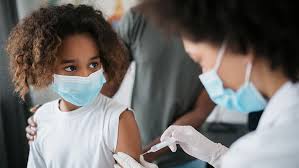In today’s world, preventing common infections is more crucial than ever. With the spread of diseases and new pathogens continually emerging, adopting effective disease prevention strategies can significantly reduce your risk of falling ill. This comprehensive guide provides essential tips for avoiding common infections, helping you maintain good health and well-being.
1. Practice Good Hand Hygiene

Overview: Hand hygiene is one of the most effective ways to prevent the spread of infections. Regular handwashing helps remove germs that can cause illnesses.
Tips:
- Wash Hands Frequently: Use soap and water to wash your hands thoroughly for at least 20 seconds, especially before eating, after using the restroom, and after coughing or sneezing.
- Use Hand Sanitizer: When soap and water aren’t available, use an alcohol-based hand sanitizer with at least 60% alcohol.
- Avoid Touching Face: Refrain from touching your face, especially your eyes, nose, and mouth, as germs can enter your body through these routes.
Key Areas to Focus On:
- After Contact with Public Surfaces: Ensure you wash your hands after touching doorknobs, elevator buttons, and other frequently touched surfaces.
- Before and After Meals: Always clean your hands before eating and after handling food.
2. Maintain Respiratory Hygiene
Overview: Respiratory hygiene helps prevent the spread of infections that are transmitted through the air, such as colds and influenza.
Tips:
- Cover Your Mouth and Nose: Use a tissue or the crook of your elbow to cover your mouth and nose when you cough or sneeze. Dispose of tissues immediately and wash your hands.
- Wear Masks: In crowded or high-risk areas, wearing a mask can help prevent the spread of respiratory infections.
- Avoid Close Contact: Maintain physical distance from people who are sick or showing symptoms of illness.
Key Areas to Focus On:
- In Public Spaces: Be mindful of your respiratory hygiene in places like public transport and crowded events.
- During Flu Season: Take extra precautions during flu season and consider getting a flu vaccine.
3. Follow Safe Food Handling Practices
Overview: Proper food handling reduces the risk of foodborne illnesses caused by bacteria, viruses, and parasites.
Tips:
- Cook Food Thoroughly: Ensure that meat, poultry, and seafood are cooked to their recommended temperatures to kill harmful bacteria.
- Keep Food at Safe Temperatures: Refrigerate perishable foods promptly and maintain your refrigerator at 40°F (4°C) or below.
- Avoid Cross-Contamination: Use separate cutting boards and utensils for raw and cooked foods to prevent cross-contamination.
Key Areas to Focus On:
- Food Storage: Store leftovers within two hours of cooking and consume them within a few days.
- Hand Hygiene: Wash your hands before preparing food and after handling raw ingredients.
4. Stay Up-to-Date with Vaccinations

Overview: Vaccinations are a key component of disease prevention, providing protection against various infections and reducing the risk of outbreaks.
Tips:
- Get Routine Vaccinations: Ensure you and your family are up-to-date with routine vaccinations, including those for measles, mumps, rubella, and diphtheria.
- Consider Seasonal Vaccines: During flu season, get an annual flu vaccine to protect against the latest strains of influenza.
- Travel Vaccinations: If traveling internationally, check if specific vaccinations are required or recommended for your destination.
Key Areas to Focus On:
- Children and Adults: Vaccinations are important for individuals of all ages. Ensure that children receive their scheduled vaccines and adults keep up with booster shots.
- Consult Healthcare Providers: Speak with your healthcare provider to determine which vaccines are appropriate for you based on your age, health status, and lifestyle.
5. Maintain a Healthy Lifestyle
Overview: A healthy lifestyle supports a strong immune system, helping your body resist infections and recover more quickly if you do become ill.
Tips:
- Eat a Balanced Diet: Include a variety of fruits, vegetables, whole grains, and lean proteins in your diet to support overall health and immune function.
- Exercise Regularly: Engage in regular physical activity to boost your immune system and improve overall well-being.
- Get Adequate Sleep: Aim for 7-9 hours of quality sleep each night to help your body repair and maintain a strong immune response.
- Manage Stress: Practice stress-reducing techniques such as meditation, yoga, or deep breathing to maintain mental and physical health.
Key Areas to Focus On:
- Nutrition: Prioritize nutrient-rich foods that support immune health, such as citrus fruits, leafy greens, and nuts.
- Physical Activity: Incorporate both aerobic and strength-training exercises into your routine.
6. Practice Safe Personal Habits
Overview: Personal habits play a significant role in infection prevention. Adopting safe practices in daily life can help reduce your risk of contracting and spreading diseases.
Tips:
- Avoid Sharing Personal Items: Do not share items like towels, razors, or eating utensils to prevent the spread of germs.
- Clean and Disinfect: Regularly clean and disinfect frequently touched surfaces in your home, such as doorknobs, light switches, and countertops.
- Stay Hydrated: Drink plenty of water to help flush out toxins and maintain overall health.
Key Areas to Focus On:
- Home Environment: Maintain a clean and hygienic living environment to reduce the risk of infections.
- Personal Care: Practice good personal hygiene, including regular bathing and oral care.
7. Be Aware of Travel Health Precautions

Overview: Traveling exposes you to different environments and potential health risks. Taking precautions before and during travel can help prevent infections.
Tips:
- Research Destination Health Risks: Before traveling, research any health risks associated with your destination and take necessary precautions, such as vaccinations or preventive medications.
- Practice Hygiene: Follow hygiene practices similar to those at home, including handwashing and avoiding contaminated food and water.
- Carry Health Supplies: Pack essential health supplies, such as hand sanitizer, first aid items, and any necessary medications.
Key Areas to Focus On:
- Pre-Travel Planning: Consult with a travel health clinic or your healthcare provider for personalized advice.
- During Travel: Remain vigilant about hygiene and health practices while traveling.
Conclusion
Preventing common infections involves a combination of good hygiene practices, a healthy lifestyle, and staying informed about health risks. By following these disease prevention tips, you can significantly reduce your risk of illness and promote better health for yourself and those around you. Incorporate these strategies into your daily routine and remain proactive about your health to enjoy a safer and healthier life in 2024 and beyond.

